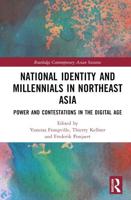Publisher's Synopsis
During the Vietnam War, the United States embarked on an unusual crusade on behalf of the government of South Vietnam. Known as the pacification program, it sought to help South Vietnam's government take root and survive as an independent, legitimate entity by defeating communist insurgents and promoting economic development and political reforms. In this book, Richard Hunt provides the first comprehensive history of America's ?battle for hearts and minds,? the distinctive blending of military and political approaches that took aim at the essence of the struggle between North and South Vietnam.Hunt concentrates on the American role, setting pacification in the larger political context of nation building. He describes the search for the best combination of military and political action, incorporating analysis of the controversial Phoenix program, and illuminates the difficulties the Americans encountered with their sometimes reluctant ally. The author explains how hard it was to get the U.S. Army involved in pacification and shows the struggle to yoke divergent organizations (military, civilian, and intelligence agencies) to serve one common goal. The greatest challenge of all was to persuade a surrogate?the Saigon government?to carry out programs and to make reforms conceived of by American officials.The book concludes with a careful assessment of pacification's successes and failures. Would the Saigon government have flourished if there had been more time to consolidate the gains of pacification? Or was the regime so fundamentally flawed that its demise was preordained by its internal contradictions? This pathbreaking book offers startling and provocative answers to these and other important questions about our Vietnam experience.











